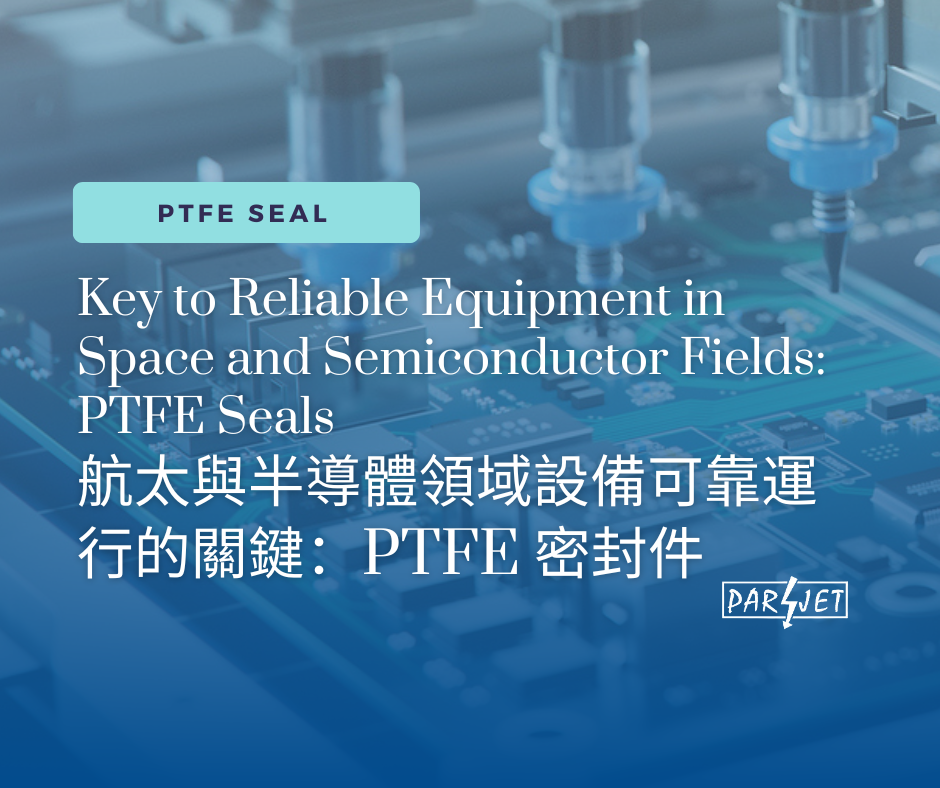
Key to Reliable Equipment in Space and Semiconductor Fields: PTFE Seals
Key to Reliable Equipment in Space and Semiconductor Fields: PTFE Seals
In today’s rapidly evolving world, ensuring equipment performance in critical industries like space exploration and semiconductor manufacturing is more important than ever. PTFE (Polytetrafluoroethylene) seals play a vital role in supporting these high-tech applications. With their exceptional durability and resistance to harsh environments, PTFE seals help ensure the reliable, long-lasting operation of sensitive equipment. In this article, we explore why PTFE seals are essential to the future of advanced engineering.
Why Choose PTFE Seals?
Key Characteristics:
- - Wide temperature resistance: -328°F to 500°F (-200°C to 260°C)
- - FDA-compliant compounds and hygienic designs are available
- - Excellent resistance to chemicals and corrosion
- - Lowest coefficient of friction among seal materials
- - Suitable for dry-running (no lubrication required)
- - Standard designs support up to 3,000 psi (210 bar)
- - Special designs available for up to 20,000 psi (1380 bar)
The Role of PTFE Seals in Space Applications
Why Sealing Matters in Space
Space equipment must operate in extreme conditions: high vacuum, intense radiation, and wide temperature swings. PTFE seals help ensure these systems remain leak-free, safe, and stable.
Key benefits in space:
- - Resistance to temperature and pressure fluctuations
- - Protection against chemical degradation
- - Long-lasting performance under zero-lubrication conditions
Real-World Examples:
- - Satellites: PTFE seals protect critical systems from vacuum leaks and particle contamination.
- - Mars Rovers: These seals withstand the harsh Martian environment and reduce the risk of component failure.
PTFE Seals in Semiconductor Manufacturing
Challenges in Semiconductor Production
- - Contamination control: Even a tiny particle can damage a microchip.
- - Chemical exposure: Strong acids and solvents are used throughout the process.
- - Thermal cycling: Equipment must perform under constant temperature changes.
How PTFE Seals Help
- - Chemical resistance: Excellent performance in aggressive etching and cleaning agents.
- - Thermal stability: Withstands high-heat processes like wafer baking or plasma etching.
- - Improved yield: Reduces risk of contamination and enhances cleanroom reliability.
Benefits of PTFE Seals in Demanding Environments
Durability & Reliability
PTFE seals are highly resistant to wear, chemical degradation, and thermal stress — making them ideal for mission-critical systems in aerospace, semiconductor tools, and precision medical equipment.
Cost Efficiency
While initial costs may be higher, the long-term savings from reduced maintenance, downtime, and replacements make PTFE seals a smart investment for industries seeking reliability and performance.
How to Select the Right PTFE Seal
Key Selection Criteria:
- - Sealing Media: Choose the right compound for the process chemicals involved.
- - Temperature range: Ensure the material can perform under the application’s temperature extremes.
- - Pressure conditions: Consider both static and dynamic load requirements.
- - Motion: For dynamic (reciprocating, rotary or oscillating) applications, speed and motions are key to choosing the right PTFE seal.
Common PTFE Seal Types:
|
Seal Type |
Description |
Best For |
|
O-Rings |
Standard circular seals for static or slow-moving parts |
Pumps, valves, and pipe connections |
|
Gaskets |
Flat seals for mating surfaces |
Flanges, equipment enclosures |
|
Custom Seals |
Tailored to fit complex designs or unusual geometries |
High-tech systems, semiconductor tools |
Conclusion
PTFE seals are essential components in high-performance systems where reliability, cleanliness, and durability matter most. Whether in the vacuum of space or the cleanrooms of chip fabrication facilities, PTFE seals help enable innovation and long-term success.
As industries continue to demand higher performance from their equipment, the importance of advanced sealing technologies like PTFE will only grow. Their role in ensuring precision, safety, and operational stability across critical industries is undeniable.
Frequently Asked Questions (FAQ)
Q1: What makes PTFE seals ideal for high-tech applications?
PTFE offers excellent resistance to chemicals, high temperatures, wear, and friction, making it suitable for cleanroom environments and demanding applications.
Q2: Can PTFE seals withstand extreme temperatures?
Yes, PTFE seals can operate reliably from -200°C to 260°C, and the temperature range can be adjusted with different fillers.
Q3: How do PTFE seals benefit semiconductor manufacturing?
They prevent contamination, leakages, resist harsh chemicals, and reduce downtime, improving overall process efficiency and yield.
Q4: Are PTFE seals cost-effective?
Though they may have a higher initial cost, their longevity and reduced maintenance requirements lead to significant long-term savings.
Q5: What seal types are available in PTFE?
O-rings, gaskets, spring-energized seals, and fully custom designs for specific equipment.





